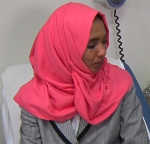Social Watch news
Published on Sat, 2016-06-25 08:33
For several years the Group of 20 (G20) has been increasing the intensity of its focus on infrastructure investment, resulting since the beginning of 2014 in the launch of a Working Group on Investment in Infrastructure. Over those years, the G20 has tasked the Organization for Economic Cooperation and Development (OECD), whose membership comprises 34 countries, to provide numerous technical inputs for its work on infrastructure. The OECD is, indeed, one of the most visible and prolific of the international organizations acting as resources for the G20, often co-branding its reports with the grouping. A recently-released report, “In Search of Policy Coherence: Aligning OECD Infrastructure Advice with Sustainable Development,” puts this facet of the organization’s work under the spotlight.
|
Published on Fri, 2016-06-24 14:48
The contradictions between economic growth and a sustainable development approaches appear in National Framework Strategy on Sustainable Development (NFSSD) 2012-2024. The first approach identifies classic economic growth as a priority goal; while the second emphasizes environmental preservation and, accordingly, a shift to sustainable consumption and production patterns. The ”decoupling” of economic growth and environmental destruction is envisaged, but it has so far not led to a reduction of the global environmental load in absolute terms, although it has contributed to a modest reduction in its rate of growth.
Whether the 2030 Agenda can live up to its promise to advance the sustainable development process and further international cooperation in this regard will only be seen in the implementation process: provided that it creates a precise and transparent monitoring system, argues the Hungarian civil society report.
|
Published on Fri, 2016-06-24 14:38
The Thai government has announced a “Pracha Rath” (State of the People) policy framework, but this “ironically has become a shared agenda between the Government and the industrial and corporate complex, enabling industrial and corporate interests to become the main drivers of development rather than the society and the citizen”.
The Thai Social Watch report 2016 describes a “development trap” with community self-reliance decreasing in rural areas. “As agro-industry takes over, farmers are becoming paid labor or even contract laborers on their own land. Land resources are being excavated mining and other extractive industries owned by by transnational corporations.” Meanwhile, development plans “call for big projects to facilitate the provision of resources, fuel, energy and transportation to the industrial sector and urban areas, causing under-reproduction of labor and damaging the environment”.
|
Published on Thu, 2016-06-23 18:16
In discussions of sovereign debt, some actors occasionally project the sensibility, implicitly or explicitly, that efforts to bring issues of justice and sovereign debt together are not entirely appropriate. In this view, questions of human rights, governmental accountability to citizens, and justice more generally fall into one legal and political arena, while sovereign debt belongs to another sphere—namely, to the hard-headed world of international finance, which has its own set of rules and market principles. This underlying assumption can ground the contention that, although it is possible for these areas to overlap to some degree, they should be understood as belonging to two separate worlds. Relatedly, this assumption also can undergird resistance to criticism of the existing sovereign debt regime and undercut efforts to change these practices.
|
Published on Wed, 2016-06-22 10:37
Recent austerity policies are undermining economic, social and labour rights within the European Union (EU) and are hitting the most vulnerable, the United Nations Independent Expert on the effects of foreign debt and human rights, Mr Juan Pablo Bohoslavsky, has said.
This conclusion was highlighted in an end-of-mission statement following his recent official visit to EU institutions to assess the response of these institutions and of EU Member States "to the sovereign debt and financial crisis from a human rights perspective."
|
Published on Tue, 2016-06-21 14:46
Last June 19th, we have been witnesses of the extremely violent actions of the Mexican State repressing the teachers and the organized civil society in resistance in different areas of the State of Oaxaca including the Istmus of Tehuantepec, Nochixtlán and the city of Oaxaca.
As a result of the excessive use of force, at least six persons have lost their lives and dozens have been injured and arrested. At this moment there is no information about the whereabouts of the arrested persons neither there is an exact total number of injured and killed persons. Medical attention was not guaranteed and civil society had to create points of emergency medical attention to injured persons without being able to cope with the demand.
There are happening particularly violent actions in the city of Oaxaca tonight. We have witnessed the arrival of a large number of airplanes of the Federal Police and the Gendarmerie in the city throughout the day as well as we witness that the tension is increasing every minute.
|
Published on Fri, 2016-06-10 17:26
Malta will hold the Presidency of the European Union in the first half of 2017 and it should practice what it preaches, argues the Maltese NGO Kopin, "by ending European agricultural subsidies and other unjust practices that are harming and keeping poor undeveloped countries from reaching their potential". Justice and dignity for Maltese citizens cannot be separated from that of all citizens around the world and therefore the role of Malta as tax haven should be revised, since "tax evasion and money laundering are two major causes of global poverty and injustice". Further, the Mediterranean island should do more towards the integration of migrants, combatting xenophobia and "putting special emphasis on the rights of children and youth who are migrating, irrespective of their reasons to move".
|
Published on Fri, 2016-06-10 17:15
Jordan is a middle income country, but the consequences of the global economic crisis and the massive influx of Syrian refugees are enormous challenges. Despite some progress in achieving the MDGs, little was made on goals that required structural change, harmony among policies, continuity and sustainability of funding–notably the targets on employment and environmental sustainability. The country is not receiving adequate international support to host 1.3 million Syrians (one for every five Jordanians) which together with a fast growing population impose stress on social services and water provision. Yet, for civil society "the main challenge is lack of good governance".
|
Published on Fri, 2016-06-10 15:11
Since the 1990s, when democracy was reinstated, Bangladesh has been able to make some extraordinary achievements. The poverty rate was 57 percent in 1991 and was reduced to 31.5 percent in 2010, enrolment in primary education reached 98 per cent and girls slightly outnumber boys in schools. But budget allocations to health and social security are far from enough, corruption and illicit financial flows divert resources and climate change is set to produce more physical damage in Bangladesh by 2025 than in any other country. Rising sea levels, severe storms and other extreme climate-related events are going to produce millions of "climate refugees" in a country that has not contributed to generate this phenomenon and is not receiving compensation for enormous loss and damages.
|
Published on Fri, 2016-06-10 11:22
According to a recent human rights report, “in its operational policies, in particular, [the World Bank] treats human rights more like an infectious disease than universal values and obligations.”
No, the recent report was not from a health agency, but from the UN Special Rapporteur on Extreme Poverty and Human Rights, Mr. Philip Alston. In the report, he summarizes the World Bank (“the Bank”)’s practice on the matter in four propositions: “(a) pay lip service to human rights in official settings, as long as there are no consequences; (b) acknowledge the theoretical significance of human rights in studies and analyses of issues in relation to which they are incontestably relevant; (c) ensure that, as a general rule, the Bank does not engage with any aspect of human rights in its actual operations and lending; and (d) be prepared to make exceptions when political imperatives require it, even if that involves a high degree of inconsistency.”
|
SUSCRIBE TO OUR NEWSLETTER
Submit

|










